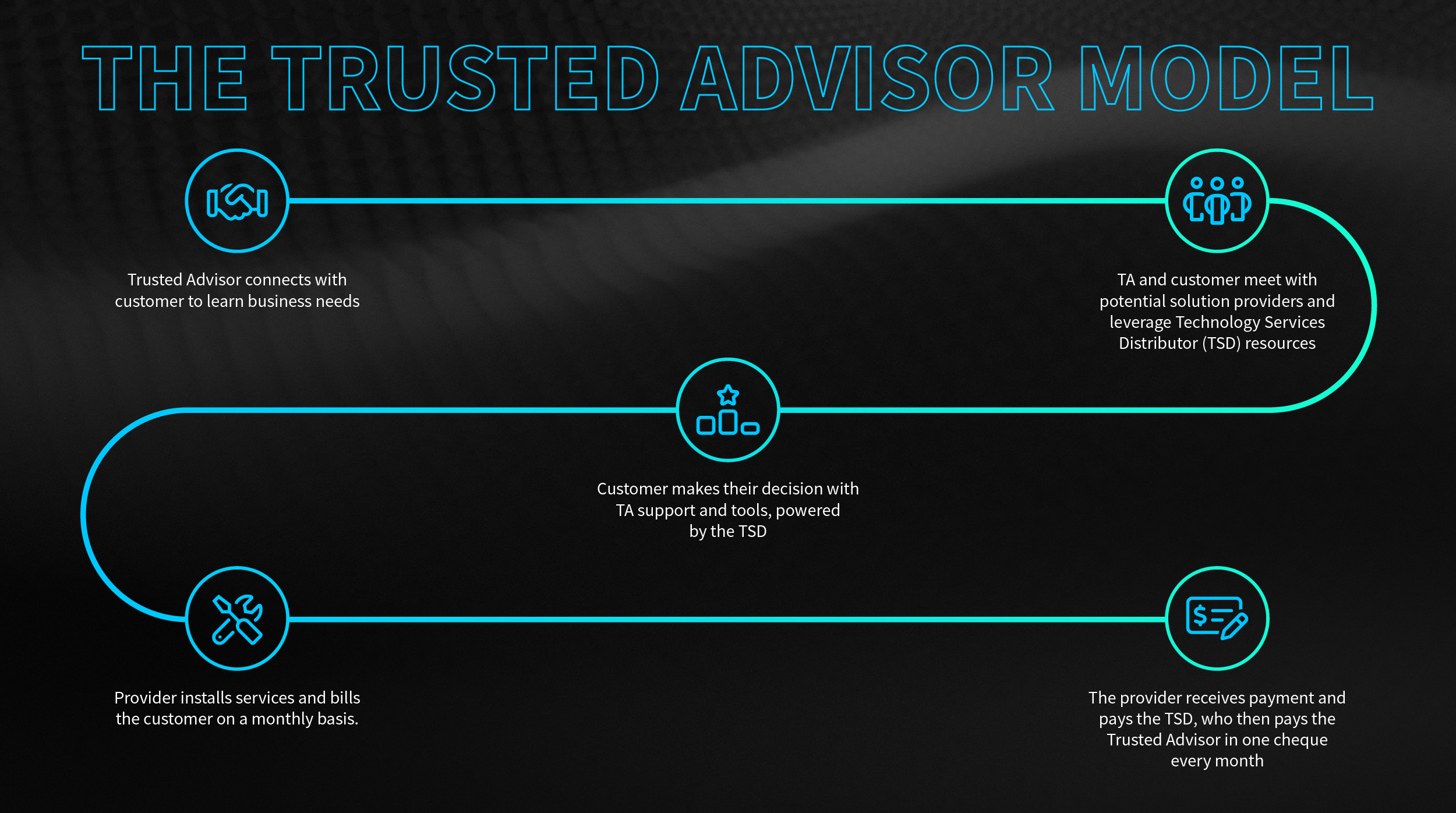How a Trusted Advisor can help you keep pace with rapid technological change
THE ARTICLES ON THESE PAGES ARE PRODUCED BY BUSINESS REPORTER, WHICH TAKES SOLE RESPONSIBILITY FOR THE CONTENTS


Avant is a Business Reporter client.
AVANT Communications CEO Ian Kieninger and Vice President Rob Merhej explore how the Trusted Advisor movement is gaining traction around the globe
The rapid pace of innovation makes it increasingly challenging for businesses to find the right technology solutions to meet their needs. That pace of change will only increase. So how can organisations efficiently navigate through numerous vendors and identify technology solutions that meet their requirements? The answer is the Trusted Advisor, a concept that is rapidly gaining traction here in the UK.
What is a Trusted Advisor?
A Trusted Advisor can help you successfully navigate the fast-evolving technology landscape. Unlike the direct sales model, which involves working with a single vendor motivated to sell their own products, a Trusted Advisor is an IT consultant who acts as an extension of an organisation’s team and focuses on finding the best possible solution for your unique needs.
Because they are not driven by sales quotas, a Trusted Advisor can provide informed guidance while helping you navigate the increasingly complex IT landscape. By comparing options from an array of vetted vendors, a Trusted Advisor can lead you not just to the best solution for solving one specific challenge – from setting up UCaaS, CCaaS, or security solutions, to designing cloud systems and deploying global networks – they can also introduce a broader ecosystem of vendors that can deliver even greater business and IT benefits.

State of the market
Although the idea of Trusted Advisors is still catching on in the UK, it has already matured in the US, and is currently generating tens of billions of dollars in revenue each year. This innovative model has attracted many new entrants who are signing up at a rapid pace, leading to its global growth: 40 per cent of today’s Trusted Advisors established their businesses in the past two to three years.
Spurred by both a clear recognition of the benefits this new model offers to end users and the opportunities that exist to help those organisations make sense of complex topics such as AI and security, new Trusted Advisors are pairing their technology expertise and prior experience in successfully implementing IT projects, as well as their established relationships in the market, with a commitment to helping customers find the best possible solutions.
As a testament to the confidence that customers are developing in Trusted Advisors and the success that the model enables, 60 per cent of Trusted Advisors in EMEA have assisted businesses on more than one project, paving the way for continued market momentum.
Finding a Trusted Advisor
The emergence of new and disruptive technologies such as ChatGPT, and its huge potential applications, make decision-making more critical than ever. As such, when choosing a Trusted Advisor, it’s important to consider essential capabilities.
- Alignment with business goals and objectives. Is the Trusted Advisor aligned with your business goals and objectives? Do they understand what you are trying to accomplish with a particular IT project and how it will contribute to your organisation’s mission?
- Attention to detail. Does the Trusted Advisor spend the time upfront gathering the information necessary to craft a comprehensive picture of your existing infrastructure, staffing levels, requirements and challenges? Do they inquire about other current initiatives that might complement or conflict with the project they’ll be assisting you with?
- Understanding of evolving market trends. Are they up to date on the latest technology developments and trends? Do they know the most recent offerings from larger vendors as well as innovative solutions being introduced by new market entrants? Can they introduce new concepts or options that you were not aware of? Can they speak to the future direction of current solutions so you are getting a plan that will take you into the future?
- Expertise and resources. Does the Trusted Advisor have access to market research, statistics, product specs and case studies, as well as a technology platform that enables them to quickly and accurately deliver a curated list of options based on your unique requirements? Do they have a strong team of experts with hands-on experience in your key technology areas that they can turn to for deeper expertise as necessary?
- Processes. Can the Trusted Advisor share the process they use to reach the recommendations they make? Can they talk through why the final options presented made the cut and why other options didn’t? Do they provide a comprehensive consultancy report that details what they found, what you need and how the recommended approach will benefit you, along with a list of vendors and other parties that will be involved? Was the solution customised to your specific needs, not just a one-size-fits-all approach? Or are they saying, “Here’s the answer. What’s the question?”
- Trustworthiness. Once you have covered the above areas, the key question you must ask before signing on with a Trusted Advisor is, do you trust them?
Taking all these characteristics into account when evaluating Trusted Advisor options can help you find the best match for your needs. And working with a Trusted Advisor who closely follows market and technology developments and is focused solely on your requirements and outcomes can lead to a more comprehensive, integrated solution that delivers broader technology and business benefits than you initially imagined.
In short, there will always be a need for direct selling, but by and large, direct sales in IT are quickly becoming a thing of the past. The world of the Trusted Advisor is emerging, and it is here to stay.
For more information on the Trusted Advisor model and what it means for your business, please visit the AVANT website.